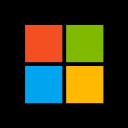Microsoft Benefits the Most from HP Killing webOS Platform
HP’s (NYSE:HPQ) recent results included the announcement that HP would effectively kill its webOS platform, [1] which it acquired by buying Palm for $1.2 billion in 2010.
The company’s webOS competed primarily with Google’s (NASDAQ:GOOG) Android, Apple’s (NASDAQ:AAPL) iOS and Microsoft’s (NASDAQ:MSFT) Windows Phone 7 in the mobile computing market (smartphones and tablets). In light of Google’s recent Motorola deal and Apple’s unwillingness to license its iOS to third parties, we believe that Microsoft will be one of the primary beneficiaries of the death of webOS. We currently have a $28 Trefis price estimate for Microsoft, which implies a 10% upside to the current market price.
- Microsoft Stock Surpassed The Consensus In Q4, What’s Next?
- Up Nearly 70% Since The Beginning Of 2023, Where Is Microsoft Stock Headed?
- Up 63% Since The Beginning Of 2023, How Will Microsoft Stock Trend After Q2 Earnings?
- Microsoft Stock Is Up 45% YTD And Outperformed The Consensus In Q1
- Microsoft Stock Outperformed The Expectations In Q4
- Microsoft Stock Is Fairly Priced At The Current Levels
How the Death of webOS Affects Microsoft
The press release states:
HP will discontinue operations for webOS devices, specifically the TouchPad and webOS phones. The devices have not met internal milestones and financial targets. HP will continue to explore options to optimize the value of webOS software going forward. [2]
Microsoft will gain the most of webOS’s demise. The company has been wooing the abandoned webOS developers with free phones and goodies in order to attract them to the Windows Phone 7 platform. After HP announced that it would discontinue webOS, Brandon Watson, Senior Director of Microsoft’s Windows Phone 7 business, announced on Twitter that Microsoft will be giving free Windows Phone 7 phones and training to all published webOS developers. [3] With webOS dead and the future of RIM’s QNX looking bleak, Microsoft’s Windows Phone 7 remains one of the most promising alternatives to Google’s Android and Apple’s iOS platforms.
Apple doesn’t license its software to other hardware manufacturers, and Google’s recent Motorola acquisition has prompted other smartphone and tablet makers like HTC, Samsung and LG to start looking at other alternatives. HTC, Samsung and Nokia are already working on a new range of Windows Phone 7 devices which will compete with Android and iOS across the entire price spectrum.
Windows 8 a Contender in the Tablet Market
While Microsoft’s Windows 7 phone operating system is currently targeted at smartphones, Microsoft has been working on Windows 8 which will be a unified operating system for desktops and tablets. Android for tablets still has a marginal market share with the iPad dominating the tablet market currently. Windows 8 has an opportunity to become one of the dominant tablet platforms. Tablet manufacturers may be reluctant to rely on Google’s Android operating system in light of the Motorola deal.
Mobile Operating Systems Microsoft’s Next Billion Dollar Business?
While Office and Windows remain Microsoft’s most profitable businesses, the Entertainment and Devices division, comprised of the Xbox and Windows Phone 7 had the highest growth last quarter.
Windows Phone 7 could turn out to be Microsoft’s next billion dollar business and gaining a significant share of the tablet market with Windows 8 could boost revenues for Windows business even more.
Check out our complete analysis of Microsoft.
Editorial Note: An HP spokesperson has confirmed the following regarding the webOS platform, “While we [HP] are discontinuing the development of webOS-based devices, we are continuing to enhance the webOS software platform and grow the application catalog. TouchPad activations and application downloads have grown exponentially. HP also plans to continue to investigate the best ways to leverage webOS software and grow the applications.”
Notes:- see editorial note [↩]
- HP Press Release [↩]
- Microsoft Wooing WebOS Developers With Free Phones And Training, TechCrunch, August 22, 2011 [↩]
